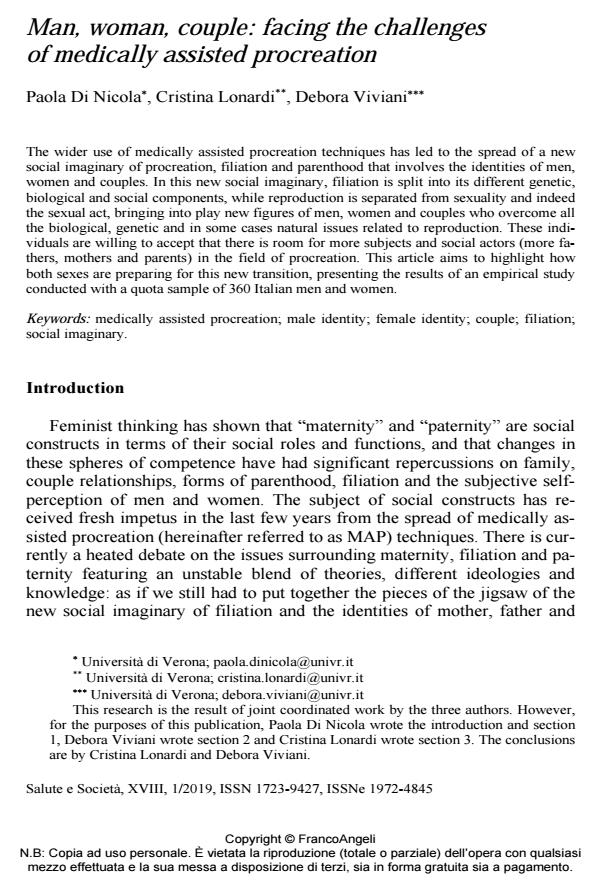Man, woman, couple: facing the challenges of medically assisted procreation
Titolo Rivista SALUTE E SOCIETÀ
Autori/Curatori Paola Di Nicola, Cristina Lonardi, Debora Viviani
Anno di pubblicazione 2019 Fascicolo 2019/1
Lingua Inglese Numero pagine 18 P. 82-99 Dimensione file 249 KB
DOI 10.3280/SES2019-001006
Il DOI è il codice a barre della proprietà intellettuale: per saperne di più
clicca qui
Qui sotto puoi vedere in anteprima la prima pagina di questo articolo.
Se questo articolo ti interessa, lo puoi acquistare (e scaricare in formato pdf) seguendo le facili indicazioni per acquistare il download credit. Acquista Download Credits per scaricare questo Articolo in formato PDF

FrancoAngeli è membro della Publishers International Linking Association, Inc (PILA), associazione indipendente e non profit per facilitare (attraverso i servizi tecnologici implementati da CrossRef.org) l’accesso degli studiosi ai contenuti digitali nelle pubblicazioni professionali e scientifiche.
The wider use of medically assisted procreation techniques has led to the spread of a new social imaginary of procreation, filiation and parenthood that involves the identities of men, women and couples. In this new social imaginary, filiation is split into its different genetic, biological and social components, while reproduction is separated from sexuality and indeed the sexual act, bringing into play new figures of men, women and couples who overcome all the biological, genetic and in some cases natural issues related to reproduction. These individuals are willing to accept that there is room for more subjects and social actors (more fathers, mothers and parents) in the field of procreation. This article aims to highlight how both sexes are preparing for this new transition, presenting the results of an empirical study conducted with a quota sample of 360 Italian men and women.
Parole chiave:Medically assisted procreation; male identity; female identity; couple; filiation; social imaginary.
Paola Di Nicola, Cristina Lonardi, Debora Viviani, Man, woman, couple: facing the challenges of medically assisted procreation in "SALUTE E SOCIETÀ" 1/2019, pp 82-99, DOI: 10.3280/SES2019-001006